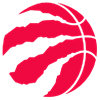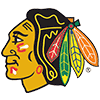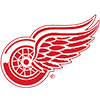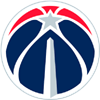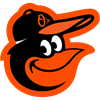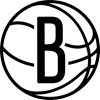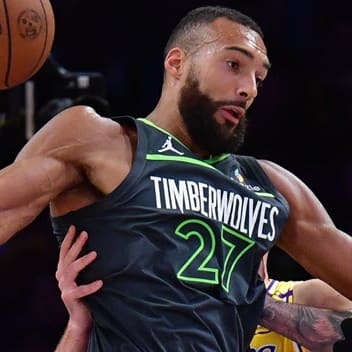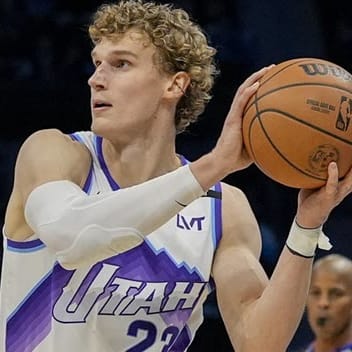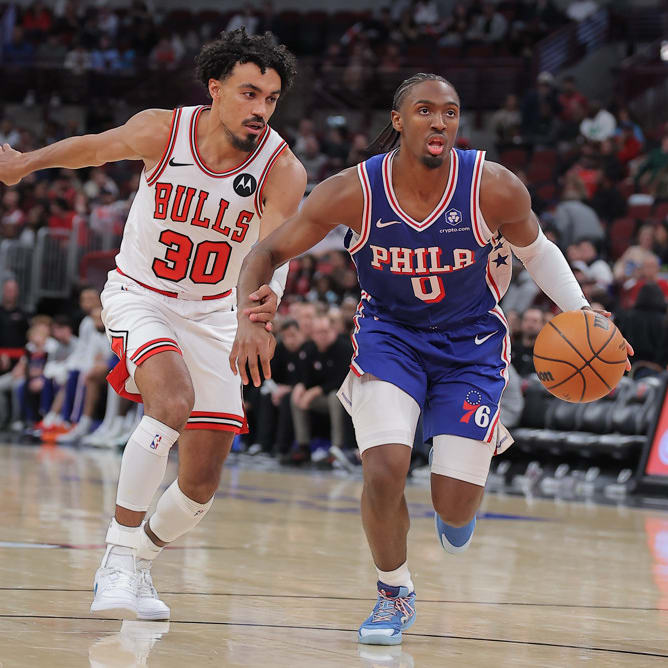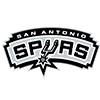 STATE OF THE FRANCHISE
STATE OF THE FRANCHISE
The Spurs sit atop the NBA world after handily beating the Miami Heat in the 2014 NBA Finals. This was the Spurs' fifth NBA championship in the Tim Duncan/Gregg Popovich era,= and perhaps the most fulfilling as they avenged the loss they suffered in the 2013 NBA Finals to the same Miami Heat team.
The Spurs' roster heading into this season looks remarkably similar to the 2013-14 version of the Spurs, as 13 of the 14 players who received minutes during their playoff run are under contract for the upcoming season. Aron Baynes is the lone exception, and its still possible that the big man, who is a restricted free agent, will return. The only major addition to the roster this offseason was forward Kyle Anderson, the last pick in the first round of the 2014 NBA Draft.
For years, the Spurs were written off as being too old to seriously contend for another championship. They have proven their doubters wrong each of the past two seasons, and are once again favorites heading into this season to compete for the NBA championship due in large part to their elite system, culture, and coaching staff.
PLAYING TIME DISTRIBUTION
Last season, the Spurs made history by not having a single player on the team average more than 30 minutes per game. As was mentioned above, the Spurs' had almost no roster turnover this offseason, so they will likely have a very similar rotation during this upcoming season.
The starting backcourt will likely be Tony Parker, who lead the team last season with 29.4 minutes per game, and Danny Green, who started 59 of the 68 games he played in last season. Marco Belinelli and Manu Ginobili will be the primary guards off of the bench. Patty Mills averaged 19 mpg last season, but Mills will miss the majority of the season due to a shoulder injury. Its expected that Cory Joseph, who started 19 games last season, will fill in for Mills.
Kawhi Leonard and Tim Duncan both averaged just over 29 mpg last season and will start at the forward positions again for the Spurs this season. Boris Diaw will be the primary forward off the bench.
Tiago Splitter will likely be the starting center for the Spurs next season. Jeff Ayres is listed as the backup but is unlikely to average much more than the 13 mpg he got last season, as Tim Duncan often shifts over to play the center position for the Spurs.
Here are RotoWire's projections of games and minutes for the Spurs next season:
Player | GP | MPG |
Kawhi Leonard | 70 | 30.5 |
Tony Parker | 70 | 29.2 |
Tim Duncan | 73 | 28.4 |
Boris Diaw | 76 | 24.8 |
Danny Green | 77 | 24.2 |
Tiago Splitter | 71 | 24.2 |
Marco Belinelli | 76 | 24.2 |
Manu Ginobili | 64 | 22.7 |
Cory Joseph | 70 | 17.8 |
Patrick Mills | 20 | 14.8 |
Kyle Anderson | 49 | 14.1 |
Jeff Ayres | 72 | 13.0 |
Matt Bonner | 69 | 12.7 |
Austin Daye | 46 | 11.2 |
JaMychal Green | 41 | 8.0 |
PLAYER OUTLOOKS
Centers
Tiago Splitter: Splitter averaged 8.2 points, 6.2 rebounds, 1.5 assists, 0.5 steals, and 0.5 blocks in 22 minutes per game through 59 games last season. He shot 52 percent from the field on 5.9 attempts per game and 70 percent from the line on 2.9 attempts per game. He missed significant time with a right shoulder sprain in January, resulting in his low games played. Of the 59 games he played, Splitter started 50 of them as the team's center, playing next to Tim Duncan. In the playoffs, coach Gregg Popovich mixed up his starting lineup a bit, replacing Splitter with Boris Diaw at times, resulting in Splitter starting in just 18 of 23 playoff contests. Splitter took a step back in all statistical categories last season, compared with his 2012-13 contract-year performance. He'll be playing for Brazil in the FIBA World Cup and will look to carry his extra work in Spain into training camp. Splitter's fantasy strength lies in his rebounding, blocks, and field goal percentage. He's a decent option on the latter rounds of drafts for his ability to contribute in those three big-man categories.
Jeff Ayres: Ayres is heading into his fifth season in the NBA. Last season was his first in San Antonio, and he averaged 3.3 points, 3.5 rebounds, 0.8 assists, 0.2 steals, and 0.3 blocks per game in 13 minutes per game through 73 games. He shot 58 percent from the field on 2.4 attempts per game and 69 percent from the line on 0.8 attempts per game. Ayres started a career high 10 games in 2013-14 and has proven himself as an adept per-minute rebounder through his career in the NBA. He averaged 9.8 rebounds per 36 minutes last season after averaging over double digits in the two previous seasons, when he was a member of the Indiana Pacers. The big man from Arizona State is strictly a post player, taking 64 percent of his shots from within three feet of the rim last season, and his fantasy value is limited to the deepest of leagues. If you need rebounds, although he only recorded double-digit boards twice last season, Ayres could be of use if the Spurs' frontcourt were to suffer injuries. Aron Baynes may decide not to re-sign with San Antonio, which would likely give Ayres more court time this season, but in general, he's stuck at the bottom of the depth chart.
Aron Baynes: Baynes completed his first full NBA season in 2013-14 after signing with the Spurs following the end of the Australian professional season in January of 2013. Last season, he averaged 3.0 points, 2.7 rebounds, 0.6 assists, and 0.1 blocks in nine minutes per game through 53 games. He shot 44 percent from the field on 3.1 attempts per game and 91 percent from the line on 0.4 attempts per game. Baynes is currently a restricted free agent, with the Spurs holding rights of first refusal on any offer sheet Baynes receives from another team after they extended him a qualifying offer in June. He has yet to receive an offer and is reportedly weighing his options with teams in Europe, making his future in the NBA unclear. Baynes played for the Spurs' Las Vegas Summer League team, averaging 12.0 points, 10.5 rebounds, 0.3 assists, 0.3 steals, and 1.3 blocks in 26 minutes per game through four games. If he decides to re-sign with the Spurs, Baynes will play behind Tim Duncan and Tiago Splitter and compete with Jeff Ayres for the remaining minutes at center. For him to get big minutes, something catastrophic would have to happen in San Antonio, so for now, Baynes is only worth a look in the deepest of fantasy leagues.
Forwards
Kawhi Leonard: Leonard, the freshly anointed Finals MVP, is entering his fourth season in the NBA. He averaged 12.8 points, 6.2 rebounds, 2.0 assists, 1.7 steals, 0.8 blocks, and 1.1 three-pointers in 29 minutes per game through 66 games last season. Leonard shot 52 percent from the field on 9.8 attempts and 80 percent from the line on 1.9 attempts. As Tim Duncan, Manu Ginobili, and Tony Parker age, coach Gregg Popovich will begin to hand the reigns of the team over to Leonard, and Popovich has stated he will begin running offensive plays for the soft-spoken star. Leonard set career-highs in points, rebounds, assists, steals, blocks, and field goal percentage last season, but the real story of Leonard's season is how he played after returning from a fractured hand. In 25 games after the All-Star break, Leonard went into hyperdrive, averaging 14.7 points, 6.5 rebounds, 2.4 assists, 1.8 steals, 1.2 blocks, and 1.4 three-pointers, including shooting a remarkable 53 percent from the field and 86 percent from the line. During that time frame, Leonard was a top-10 fantasy talent in nine-category leagues. Leonard's value depends a lot on your league format, as his ability to help in all nine categories suits rotisserie leagues more than head-to-head or points formats. Regardless of your format, Leonard is an emerging superstar, and even with Pop's minute restrictions, Leonard was able to turn in a diverse, fantasy-friendly stat line. If he can avoid the injuries that have limited him the past two seasons, he has the potential to be a top-10 fantasy stud.
Tim Duncan: Heading into his 18th NBA season, Tim Duncan will be looking to add another ring to his fingers so he can cosplay as Thanos with minimal effort. Last season, leading the Spurs to the championship and garnering his fifth ring in the process, Duncan averaged 15.1 points, 9.7 rebounds, 3.0 assists, 0.6 steals, and 1.9 blocks in 29 minutes per game through 74 games. He shot 49 percent from the field on 12.2 attempts per game and 73 percent from the line on 4.3 attempts per game. Duncan has been remarkably consistent despite being 38 years old. He pulled down over nine boards a game for the third consecutive season and also shot over 49 percent for the eighth consecutive season. Coach Gregg Popovich is known for resting his stars and playing them limited minutes, so much so that Spurs generally hold limited fantasy value. With that said, Duncan missed just eight games last season. If you look back at the numbers Duncan has produced over the past four seasons, they are remarkably consistent, and there is no reason to think that Popovich will change his style or that Duncan will regress significantly this season. Duncan had the fifth most blocks in the entire NBA at 139, as well as posting the league's sixth best PER (player efficiency rating), at a mark of 24.4. For fantasy, Duncan's ability to block shots, score, grab boards, and shoot solid percentages makes him, yet again, a solid yet often overlooked player.
Boris Diaw: Diaw, fresh off signing a three-year, $22 million contract in July with the Spurs, is entering his 12th NBA season. He averaged 9.1 points, 4.1 rebounds, 2.8 assists, 0.6 steals, 0.4 blocks, and 0.6 three-pointers in 25 minutes per game through 79 games last season. Diaw shot 52 percent from the field on 7.3 attempts per game and 74 percent from the line on 1.2 attempts per game. He also shot 40 percent from three-point range. The big Frenchman, who is playing for France at the FIBA World Cup, will likely be the first big man off the bench for the Spurs again next season, playing behind Tim Duncan and Tiago Splitter. From a fantasy perspective, Diaw is a solid source of assists for a big man, but his overall contributions are limited minutes he plays on the Spurs. In deeper leagues, he's a solid contributor, who helps in a number of categories. At 32 years of age, this will likely be the last big contract Diaw signs, but he is showing no signs of tailing off and should be a key cog in the Spurs' title defense.
Matt Bonner: Bonner is gearing up for his 11th NBA season, which will also be his ninth straight with the Spurs. Last season, he averaged 3.2 points, 2.1 rebounds, 0.5 assists, 0.3 steals, 0.2 blocks, and 0.7 three-pointers in 11 minutes per game through 61 games. He shot 45 percent from the field on 2.7 attempts per game and 75 percent from the free-throw line on 0.2 attempts. Bonner also shot over 40 percent from beyond the arc for the fourth consecutive season, hitting his three-pointers at a 43-percent clip last season. In fact, Bonner has the seventh highest three-point percentage of all active players over his career, hitting 42 percent of his three-pointers through all 10 seasons of his NBA career. Last season, Bonner failed to start a single game, the first time he hasn't had at least one start since 2006-07. From a fantasy perspective, Bonner only really holds value if you are desperate for three-pointers or if your league counts three-point percentage. Of all of his field goal attempts, 60 percent of them come from three-point land.
Kyle Anderson: Anderson was the Spurs' first selection in the 2014 NBA Draft, at 30th overall. He played two seasons at UCLA, averaging 14.6 points, 8.8 rebounds, 6.5 assists, 1.8 steals, 0.8 blocks, and 0.8 three-pointers in 33 minutes per game through 36 games in his sophomore season. Anderson shot 48 percent from the field on 10.5 attempts per game and 74 percent from the line on 5.2 attempts. He brings a unique skill set to the NBA after playing point guard in college at 6-foot-9. Anderson projects to play as a forward in the NBA, in more of a distributor, point-forward sort of role. At the Las Vegas Summer League, he averaged 8.0 points, 3.0 rebounds, 2.0 assists, 1.2 steals, 0.5 blocks, and 0.7 three-pointers in 24 minutes per game through six games. He shot 41 percent from the field on 7.0 attempts per game and 77 percent from the line on 2.2 attempts per game. The major negative scouts saw in Anderson in the pre-draft process was his lack of athleticism, but landing in San Antonio is a great fit, given their ball-movement offense. This season, Anderson will be buried on the depth chart behind Kawhi Leonard and Danny Green and won't be a consistent fantasy factor, but he has tantalizing skills for dynasty leagues.
Austin Daye: Daye will be starting his first full season in San Antonio after coming over from the Toronto Raptors in a trade for Nando de Colo last February. He's a five-year NBA veteran and averaged 3.0 points, 1.2 rebounds, 0.4 assists, 0.2 steals, 0.2 blocks, and 0.6 three-pointers in seven minutes per game through 22 games last season. Daye played sparingly for Toronto and performed decidedly better once arriving in San Antonio. As a member of the Spurs, Daye averaged 4.1 points, 1.4 rebounds, 0.4 assists, 0.3 steals, 0.3 blocks, and 0.9 three-pointers in eight minutes per game. Overall, Daye shot 35 percent from the field on 3.1 attempts per game and 60 percent from the line on 0.5 attempts per game. A former lottery pick of the Detroit Pistons, Daye has tantalized with his multi-category fantasy abilities in the past but has never been able to solidify himself in a rotation long enough to become a fantasy-relevant player in standard leagues. He has the ability to averaged over one steal, block, and three-pointer per game guy if given the minutes, but when you're shooting 35 percent from the field, it's hard for any coach to justify giving you minutes in the NBA. The minutes likely won't be there. Daye did look very impressive in Las Vegas for the Spurs' summer league squad, averaging 16.3 points, 6.7 rebounds, 3.0 assists, 1.0 steals, 0.7 blocks, and 1.5 three-pointers in 28 minutes per game through six games. Daye only played over 20 minutes in one game last season, and he dropped 22 points, including six three-pointers, two steals, and two blocks against the hapless Sixers in a late-season game that didn't mean diddly-Daye squat to the Spurs. If it's a night where the Spurs are sitting starters and Daye is going to get minutes, he has the ability to fill up the box score, but apart from that, he can be left on the wire in most league formats.
JaMychal Green: Green signed a non-guaranteed with the Spurs this offseason. This is the second time the Spurs have brought Green in for training camp. He was cut during training camp in 2012 and then suffered the same fate with the Los Angeles Clippers in 2013. The outcome will likely be the same this season. Green, a power forward out of Alabama, played for the Spurs' Las Vegas Summer League team, averaging 7.8 points, 6.5 rebounds, 0.7 assists, 0.8 steals, and 0.8 blocks in 16 minutes per game through six games. He came off the bench in all six games. Green is unlikely to make the Spurs roster and thus can be ignored in the vast majority of fantasy leagues.
Guards
Tony Parker: Parker suffered through an injury-riddled campaign in his 13th NBA season, averaging 16.7 points, 2.3 rebounds, 5.7 assists, 0.5 steals, 0.1 blocks, and 0.4 three-pointers in 29 minutes per game through 68 games. He shot 50 percent from the field on 13.4 attempts per game and 81 percent from the line on 3.6 attempts per game. Over the previous three seasons, Parker had played 32 minutes per game, and with Mills absent for the first four months of this season, he may see his minutes increased slightly, especially initially. His points and assists were the lowest Parker has recorded since 2009-10, and as a fantasy player, his lack of three-pointers, rebounds, and steals limit his overall value. Still, Parker provides an elite source of field goal percentage for a point guard, with his uncanny knack to get into the paint and finish. In fact, 33 percent of Parker's shot attempts occurred within three feet of the hoop. His lack of three-point shooting hurts him as a fantasy player, and he struggles to create a shot for himself at that range. Of the 25 three-pointers he made last season, 96 percent of those were assisted. Parker is sitting out of the FIBA World Cup this offseason, so hopefully should be fully healthy when the season kicks off at the end of October.
Manu Ginobili: Ginobili, entering his 13th NBA season, was a vital and productive player last season after looking like he may have been nearing the end of his career during a disappointing 2013 NBA Finals. The Argentinian superstar averaged 12.3 points, 3.0 rebounds, 4.3 assists, 1.0 steals, 0.3 blocks, and 1.3 three-pointers in 23 minutes per game through 68 games last season. He shot 47 percent from the field on 9.2 attempts per game and 85 percent from the line on 2.8 attempts per game. Ginobili has played 23 minutes per game for the last three seasons, and there's no reason to expect a change this upcoming season, as the Spurs return basically the same roster as the championship-winning squad they had last season. The Spurs asked Ginobili not to play in the FIBA World Cup for Argentina as he is recovering from a stress fracture in his right leg, but that means he should be fully healthy for training camp. Despite his limited minutes, Ginobili is still a productive fantasy player, ranking within the top 100 for every season of his career, barring his rookie season. With Patty Mills (shoulder surgery) expected to be sidelined until February, Ginobili may have to become more of a scorer and playmaker on the team's second unit and could be a guy to look at in the latter rounds of the draft, especially if you are looking for a two-guard who gives out dimes and shoots a positive field goal percentage.
Danny Green: Green is heading into his sixth NBA season after winning his first championship ring last June. He averaged 9.1 points, 3.4 rebounds, 1.5 assists, 1.0 steals, 0.9 blocks, and 1.9 three-pointers in 24 minutes per game through 68 games. Green shot 43 percent from the field on 7.4 attempts per game and 79 percent from the line on 0.9 attempts per game. He dropped off a little from his breakout 2012-13 campaign but was still a valuable contributor as the team's starting shooting guard, despite missing 14 games due to various injuries. Green was considered a letdown to fantasy owners last season, but his ability to hit three-pointers and block shots as a shooting guard is valuable. He's actually the sixth most accurate three-point shooter currently in the NBA, with a career mark of 42 percent from long range, and he's also one of only a handful of players who are a threat to average one three-pointer, steal, and block per game, narrowly missing the milestone last season. Green will share time at shooting guard with Marco Belinelli and Manu Ginobili again, but even with minutes in the mid-twenties, he's a productive guy. With many owners disappointed by his performance last season, you may be able to sneak him through late, perhaps even with your final pick.
Cory Joseph: Joseph is entering his fourth season in the league after being selected in the first round by the Spurs back in 2011. Last season, Joseph averaged 5.0 points, 1.6 rebounds, 1.7 assists, 0.5 steals, 0.2 blocks, and 0.2 three-pointers in 14 minutes per game through 68 games. He shot 48 percent from the field on 3.9 attempts per game and 82 percent from the line on 1.4 attempts per game. Joseph posted a career-best PER (player efficiency rating) of 14.7 on the back of a career high in scoring. He also started a career-best 19 games, filling in whenever starter Tony Parker was out. When Parker played, however, Joseph was used as the third-string point guard behind Patty Mills. With Mills (shoulder surgery) expected to be sidelined until February, Joseph will be in line for a bump in minutes, but by looking at his per-36 statistics, he doesn't project as a very valuable fantasy option. His major fantasy contribution comes from his solid percentages and solid rebounding numbers for a guard, but he's most likely to be used as a spot starter and plug-and-play option throughout the season.
Patty Mills: Mills was a key piece in the Spurs' championship run last season. Entering his sixth campaign, Mills will be recovering from rotator cuff surgery on his right shoulder which is expected to sideline him until February. Last season, Mills averaged 10.2 points, 2.1 rebounds, 1.8 assists, 0.8 steals, 0.1 blocks, and 1.7 three-pointers in 19 minutes per game through 81 games. He shot 46 percent from the field on 82 attempts per game and 89 percent from the line on 1.0 attempts per game. Mills signed a free-agent deal with the Spurs this offseason, despite the offseason surgery and was looming as a late-round fantasy sleeper. The injury pretty much rules Mills out of all discussion in standard leagues in drafts, but he still retains value in dynasty and deeper league formats. Mills finished last season seventh in three-point percentage, hitting 42 percent of his shots from deep, and also finished ninth in turnover percentage, turning the ball over just eight percent of the time. When Mills returns and has shaken off the rust, he should regain his role as the Spurs' backup point guard and go-to scorer on the second unit.
Marco Belinelli: Belinelli is entering his eighth NBA season. Last year was his first with the Spurs, and he averaged 11.4 points, 2.8 rebounds, 2.2 assists, 0.6 steals, 0.1 blocks, and 1.6 three-pointers in 25 minutes per game through 80 games. He shot 49 percent from the field on 8.7 attempts per game and 85 percent from the line on 1.6 attempts per game. Playing in the Spurs' system helped Belinelli set career highs in rebounds, assists, and field goal percentage. Prior to last season, Belinelli's career high in field goal percentage was just 44 percent, so it'll be interesting to see if the 49 percent he shot last season was an anomaly or something he can sustain in the Spurs' elite ball-movement offense. Despite playing off the bench for the majority of last season, Belinelli posted a career high 15.0 PER (player efficiency rating). With Patty Mills (shoulder surgery) expected to be sidelined until February, Belinelli may be called upon to shoulder more of the scoring load early on. He's a reliable source of three-pointers of the waiver-wire even in standard leagues of late.
Bryce Cotton: Cotton signed with the Spurs as an undrafted free agent this offseason, penning a two-year deal in July. A four-year player at Providence, Cotton averaged 21.8 points, 3.5 rebounds, 5.8 assists, 1.0 steals, 0.1 blocks, and 2.2 three-pointers in 40 minutes per game through 35 games in his senior season of college. Cotton also played for the Spurs' Las Vegas Summer League squad, averaging 8.8 points, 2.7 rebounds, 2.8 assists, 0.5 steals, and 0.5 three-pointers in 22 minutes per game through six games. With Patty Mills (shoulder surgery) expected to be sidelined until February, Cotton has a chance to make the team out of training camp and play backup point guard behind Tony Parker and Cory Joseph. Cotton's ability to contribute significantly in fantasy leagues is muted; however, and the Spurs would need to suffer some calamitous injuries for Cotton to be worthy of consideration in anything but the deepest of leagues this season.
SLEEPER
Tiago Splitter: Splitter dealt with a right shoulder injury last season, which caused him to miss several games and reduced his playing time to an average of 22 mpg. Now that Splitter is once again healthy, it seems reasonable to expect him to exceed 24 mpg, as he did in the 2012-13 season when he averaged 25 mpg. This increase in playing time should increase his counting stats across the board, as you can see in his RotoWire projection below:
Tiago Splitter | GP | MPG | FG% | FT% | 3PM | REB | AST | STL | BLK | PTS | TO | 8 Cat Rank | 9 Cat Rank |
2014-15 Projection | 71 | 24.2 | 57% | 71% | 0.0 | 6.8 | 1.6 | 0.7 | 0.8 | 10.7 | 1.4 | 137 | 129 |
2013-14 Actual | 59 | 21.5 | 52% | 70% | 0.0 | 6.2 | 1.5 | 0.5 | 0.5 | 8.2 | 1.3 | 203 | 206 |
At this level of playing time, Splitter will likely rank somewhere between 120-140 this season, worthy of a roster spot in 12-team leagues. ESPN currently has Splitter ranked 182nd, and Yahoo has him ranked 162nd in their preseason rankings. You should be able to target Splitter at the very end of your 12-team league drafts as a cheap source of rebounds and blocks.
BUST
Tony Parker: Parker is ranked 42nd in ESPN's preseason rankings and 53rd in Yahoo's preseason rankings despite finishing last season ranked 98th in eight-category leagues and 119th in nine-category leagues. RotoWire projects Parker's 2014-15 campaign and ranking to be very similar to his 2013-2014 campaign and ranking:
Tony Parker | GP | MPG | FG% | FT% | 3PM | REB | AST | STL | BLK | PTS | TO | 8 Cat Rank | 9 Cat Rank |
2014-15 Projection | 70 | 29.2 | 49% | 81% | 0.3 | 2.6 | 6.0 | 0.7 | 0.1 | 16.0 | 2.3 | 114 | 137 |
2013-2014 Actual | 68 | 29.4 | 50% | 81% | 0.4 | 2.3 | 5.7 | 0.5 | 0.1 | 16.7 | 2.2 | 98 | 119 |
It's surprising that ESPN and Yahoo would project Parker to improve his production significantly over last season. He's a known quantity at this point in his career, and it's unlikely that he'll play significantly more minutes than he did last season. It's difficult to imagine a scenario where Parker is able to perform at a level that will justify his ESPN and Yahoo preseason ranking.









